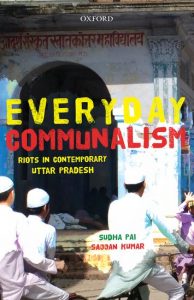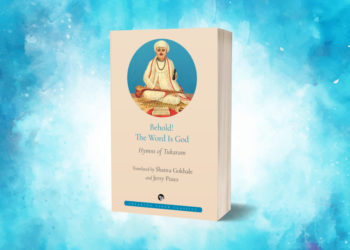
Despite the strong presence after independence of the left and socialist forces in this region, including Mau and Gorakhpur, the eastern districts have experienced the rise of right-wing Hindu forces beginning from the colonial period. This is evident from the role played by the Gita Press Gorakhpur, which was originally established to publish low-cost editions of the Gita, but which has emerged as a strong centre advocating Sanatan Dharma, upholding caste and majoritarianism, evident from its recent publications. It also supported the RJBBM (Ram Janma Bhoomi Babri Masjid) movement and continues to support the efforts of the BJP (Bharatiya Janata Party) and the RSS (Rashtriya Swayamsevak Sangh) to establish the Hindutva ideology in the region.
Today, it is the Gorakhpur Math that has emerged as the centre of Hindutva activities in the region. The Gorakhpur Math has existed as an institution over a long period of time and earlier Mahants have also entered into politics, but its character has undergone change under Yogi Adityanath. He has tried to establish the Math as a strong, autonomous institution while keeping within the ambit of the BJP–RSS, which has led to the troubled relationship with the latter. Moreover, Yogi Adityanath belongs to a non-Brahminical tradition different from the Brahminical outlook of the RSS, which enables him to include in his followers the backward castes and more lately even the Dalits. While this orientation is in keeping with the ‘non-brahminical’ Hindutva ideology and social engineering strategy of the BJP since the late 1990s and is encouraged by it for political gain, the Yogi has become an independent power centre, trying to control the pattern of communal mobilization and thereby politics of the region, increasingly outside the control of the BJP. He has formed his own cultural organizations such as the HYV (Hindu Yuva Vahini) and attempted to put up his own candidates during elections, though he wants to continue his relationship with the BJP.
As our chapter indicates, two developments underlie the emergence of communalism in the region. The first is the rise of sociopolitical consciousness among all social groups, most particularly the Ansari Muslims of the region—particularly the younger generation—making them more aware and aspirational in terms of their future. The second is globalization which has led to a decline of the weaving industry throwing large numbers of artisans out of work. This has frustrated them and made them antagonistic to the Hindu trading community witnessed in the targeting and burning of Muslim establishments during the Mau riots as the next chapter will describe. These devel- opments have made them vulnerable to communal mobilization by Yogi Adityanath and his HYV in this region. While economic factors are important, as the next chapter will show, inter-communal tension surfaces during cultural and religious events causing conflict, which has increased in recent years. A third factor has been the rise of Mafia dons who promote communalism at times and control the economy which indicates the lack of development, governance, and maintenance of law and order by the state government.
At the same time, there are differences in the nature of communal discourse and tension between the two districts of Mau and Gorakhpur. In the former, the political economy of communalism is more important due to the artisanal handloom industry in which both Muslim weavers and Hindu traders are involved in day-to-day business competition, affecting their relationship. This does not mean that Yogi Adityanath and his HYV do not play a role; they make full use of the day-to-day petty and mundane conflicts between the two communities to sustain communal tension. In Gorakhpur, where the number of Muslims is fewer and the presence of the artisanal industry is much less, the Yogi and his followers play a more central role institutionalizing everyday communalism in the town and the district.
Sudha Pai retired as professor at the Centre for Political Studies, School of Social Sciences, and rector (pro vicechancellor), Jawaharlal Nehru University, New Delhi.
Dr. Sajjan Kumar has a Ph.D from Centre for Political Studies, School of Social Sciences, Jawaharlal Nehru University, New Delhi.




